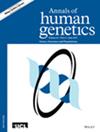Genotype and Haplotype Analysis With In Silico Prediction of TMPRSS2 Gene in Jordanian Population
Abstract
Background
The coronavirus disease 2019 (COVID-19) caused by severe acute respiratory syndrome coronavirus 2 (SARS-CoV-2) has rapidly become a global health concern. The entry of the virus into host cells is facilitated by the transmembrane protease serine 2 (TMPRSS2) receptor, and genetic variations in the TMPRSS2 gene may influence disease susceptibility. However, there is a lack of knowledge regarding TMPRSS2 genetic variants and haplotypes in the Jordanian population.
Aims
This study aimed to characterize the genotype and haplotype variations in the TMPRSS2 binding domain with SARS-CoV-2 among Jordanian volunteers.
Methods
The binding domain of TMPRSS2 with SARS-CoV-2 (Exons 9 and 10) was amplified using polymerase chain reaction (PCR) for a random sample of 120 healthy unrelated Jordanian volunteers, followed by Sanger DNA sequencing for the PCR products. The effect of the novel genetic variants on the TMPRSS2 protein structure was predicted using in silico methods.
Results
The results showed significant (p < 0.05, chi-square) allele frequencies for known TMPRSS2 variants, with c.888C > T being the most prevalent among Jordanian volunteers. Novel genetic variants, including c.869A > G and c.923T > A, were also identified, with the latter being the most common novel variant. Haplotype analysis showed that the most prevalent TMPRSS2 haplotype is c.911G/1051A/1052T/1010 + 45C/1011 − 38T/1011 − 52C/1011 − 54A. In silico programs predicted that TMPRSS2 c.923T > A and c.1052T > A variants affect transmembrane proteins and catalytic sites.
Conclusions
This research provides information about the gene structure of the TMPRSS2 binding domain in Jordanians. Some of the identified variants, especially c.923T > A, may influence protein function, warranting further in vitro and in vivo investigations. In addition, further clinical research studies are needed to link the identified TMPRSS2 variants with COVID-19 susceptibility and severity among Jordanians.

 求助内容:
求助内容: 应助结果提醒方式:
应助结果提醒方式:


